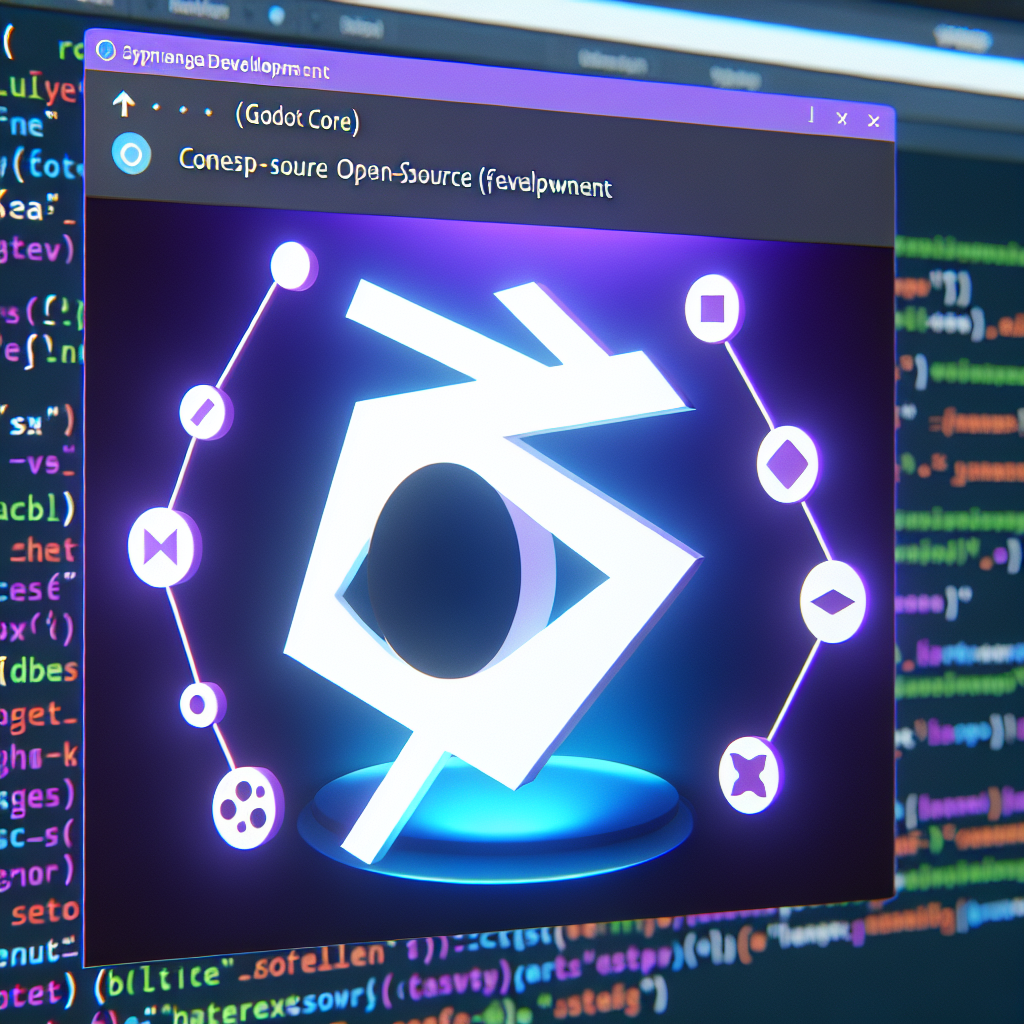Mastering Godot 4's New C# Integration: Complete Developer Guide 2025

The relationship between Godot and C# has evolved dramatically with Godot 4, offering developers unprecedented power and flexibility. Whether you’re a Unity refugee or a seasoned .NET developer, Godot 4’s enhanced C# integration opens up exciting possibilities for game development. Let’s dive into everything you need to know about leveraging C# in your Godot projects.
🚀 Why Choose C# for Godot Development?
Performance Advantages
C# in Godot 4 brings significant performance improvements over GDScript in certain scenarios:
Execution Speed:
- Mathematics operations: Up to 10x faster
- Complex algorithms: 3-5x performance boost
- Large data processing: Significantly improved memory handling
Real-World Comparison:
1
2
3
4
5
6
7
8
9
10
11
12
13
// C# - Optimized pathfinding calculation
public class PathfindingManager : Node
{
private List<Vector2> CalculatePath(Vector2 start, Vector2 end, int[,] grid)
{
// C# collections and algorithms perform exceptionally well
var openSet = new PriorityQueue<Node, float>();
var closedSet = new HashSet<Vector2>();
// Complex pathfinding logic runs 3-5x faster than GDScript
return OptimizedAStar(start, end, grid, openSet, closedSet);
}
}
Enterprise-Level Features
- Strong typing prevents runtime errors
- IntelliSense support for faster development
- Extensive .NET ecosystem access
- Advanced debugging capabilities
🛠️ Setting Up C# Development in Godot 4
Prerequisites and Installation
Required Components:
- .NET 6.0 SDK or later
- Godot 4.x with .NET support
- Visual Studio 2022 or VS Code with C# extension
1
2
3
4
# Verify .NET installation
dotnet --version
# Should return 6.0.0 or higher
Project Configuration
Creating a C# Project:
- New Project Setup:
1 2 3 4
// Project settings automatically generate: // - ProjectName.csproj // - .godot folder with bindings // - Scripts folder structure
- Basic Project Structure:
1 2 3 4 5 6 7 8
MyGodotGame/ ├── scenes/ ├── scripts/ │ ├── Player.cs │ ├── GameManager.cs │ └── UI/ ├── MyGodotGame.csproj └── MyGodotGame.sln
🎯 Essential C# Patterns in Godot 4
Node Management and Lifecycle
1
2
3
4
5
6
7
8
9
10
11
12
13
14
15
16
17
18
19
20
21
22
23
24
25
26
27
28
29
30
31
32
33
34
35
36
37
38
39
40
41
42
43
44
45
using Godot;
public partial class Player : CharacterBody3D
{
[Export] public float Speed = 5.0f;
[Export] public float JumpVelocity = 4.5f;
// Godot's gravity setting
private float gravity = ProjectSettings.GetSetting("physics/3d/default_gravity").AsSingle();
public override void _Ready()
{
// Initialize player components
SetupPlayerSystems();
}
public override void _PhysicsProcess(double delta)
{
Vector3 velocity = Velocity;
// Handle gravity
if (!IsOnFloor())
velocity.Y -= gravity * (float)delta;
// Handle jump
if (Input.IsActionJustPressed("ui_accept") && IsOnFloor())
velocity.Y = JumpVelocity;
// Handle movement
Vector2 inputDir = Input.GetVector("move_left", "move_right", "move_forward", "move_back");
if (inputDir != Vector2.Zero)
{
velocity.X = inputDir.X * Speed;
velocity.Z = inputDir.Y * Speed;
}
else
{
velocity.X = Mathf.MoveToward(Velocity.X, 0, Speed);
velocity.Z = Mathf.MoveToward(Velocity.Z, 0, Speed);
}
Velocity = velocity;
MoveAndSlide();
}
}
Advanced Signal Handling
1
2
3
4
5
6
7
8
9
10
11
12
13
14
15
16
17
18
19
20
21
22
23
24
25
26
27
28
public partial class GameManager : Node
{
[Signal] public delegate void PlayerHealthChangedEventHandler(int newHealth);
[Signal] public delegate void GameOverEventHandler();
private int playerHealth = 100;
public override void _Ready()
{
// Connect to player signals
var player = GetNode<Player>("Player");
player.Connect("health_changed", new Callable(this, nameof(OnPlayerHealthChanged)));
// Connect our signals to UI
Connect("player_health_changed", new Callable(GetNode("UI/HealthBar"), nameof(UpdateHealthBar)));
}
private void OnPlayerHealthChanged(int newHealth)
{
playerHealth = newHealth;
EmitSignal(SignalName.PlayerHealthChanged, newHealth);
if (newHealth <= 0)
{
EmitSignal(SignalName.GameOver);
}
}
}
🔧 Performance Optimization Techniques
Memory Management Best Practices
1
2
3
4
5
6
7
8
9
10
11
12
13
14
15
16
17
18
19
20
21
22
23
24
25
26
27
28
29
30
31
32
33
34
35
public partial class PerformantGameSystem : Node
{
// Use object pooling for frequently created/destroyed objects
private Queue<Bullet> bulletPool = new Queue<Bullet>();
private List<Enemy> activeEnemies = new List<Enemy>();
// Cache frequently accessed nodes
private Player player;
private UI uiManager;
public override void _Ready()
{
// Cache references during initialization
player = GetNode<Player>("Player");
uiManager = GetNode<UI>("UI");
// Pre-populate object pools
InitializeBulletPool(50);
}
public Bullet GetPooledBullet()
{
if (bulletPool.Count > 0)
return bulletPool.Dequeue();
// Create new bullet if pool is empty
return CreateNewBullet();
}
public void ReturnBulletToPool(Bullet bullet)
{
bullet.Reset();
bulletPool.Enqueue(bullet);
}
}
Efficient Resource Loading
1
2
3
4
5
6
7
8
9
10
11
12
13
14
15
16
17
18
19
20
public static class ResourceManager
{
private static Dictionary<string, Resource> cachedResources = new Dictionary<string, Resource>();
public static T LoadResource<T>(string path) where T : Resource
{
if (cachedResources.ContainsKey(path))
return (T)cachedResources[path];
var resource = GD.Load<T>(path);
cachedResources[path] = resource;
return resource;
}
public static async Task<T> LoadResourceAsync<T>(string path) where T : Resource
{
// Implement async loading for large resources
return await Task.Run(() => LoadResource<T>(path));
}
}
📱 Cross-Platform Development
Platform-Specific Code
```csharp public partial class PlatformManager : Node { public override void _Ready() { ConfigurePlatformSpecificSettings(); }
1
private void Configur
